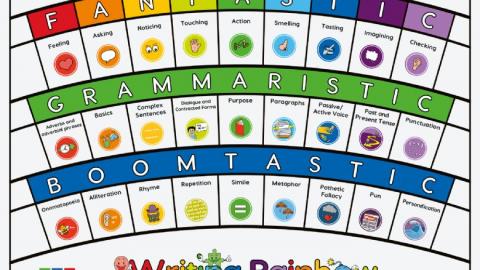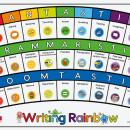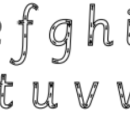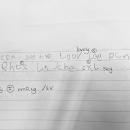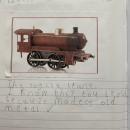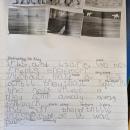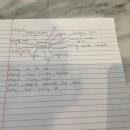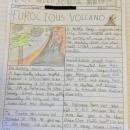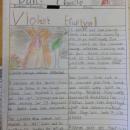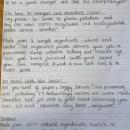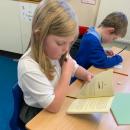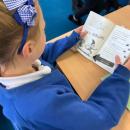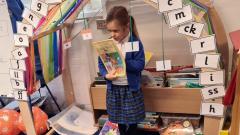We offer a comprehensive and wide-ranging English curriculum, designed to inspire and enthuse children to become confident and fluent speakers, readers and writers. These skills are essential for children to enjoy learning and achieving across the whole curriculum and to continue achieving and feeling good about themselves as they leave school and participate fully as a member of society. It is crucial that children are able to communicate their ideas and emotions to others and we understand the role that high-quality English teaching plays in this.
Reading
Reading supports the development of spelling, vocabulary acquisition, understanding of grammar and the ability to fully express thoughts, ideas and emotions, both through writing and the spoken word. At Christ Church School, reading and engaging with literature is central to the school day. We want to ensure all children develop a love of literature, a passion for reading and are able read fluently for pleasure and information. Our Reading Strategy document sets out the ways in which we ensure all children have multiple opportunities to engage with different texts throughout the day and out full vision for reading at Christ Church School.
Writing transcription: Spelling and Handwriting
Children have a taught handwriting lesson every week using the Pen Pals Scheme of Work. In Key Stage 1, spelling is taught through daily Rocket Phonics lessons. In Key Stage 2, children continue to practise and learn new spellings, in line with the National Curriculum, at least 4 times per week. They then have opportunities to practise and apply their spelling and handwriting skills in other curriculum subjects, including English lessons.
Grammar and punctuation
Children have a weekly grammar lesson which is taught in line with the National Curriculum. We use resources from Scofield and Simms and Grammasaurus to help us achieve this. Children then continue to revisit and apply their grammatical knowledge in daily English lessons.
Writing composition
We teach writing through an approach developed by Jane Considine, which centres on engaging, vocabulary-rich texts, that provide a wealth of discussion and writing opportunities. Before writing, children explore and respond to the text. They then have opportunities for vocabulary building and shared writing, before generating and organising their own ideas in their independent writing. Over each year, they will develop a range of skills that will enable them to write for a variety of purposes and across multiple fiction and non-fiction genres with increasing complexity. They will consider the impact their writing will have on the reader, have a sophisticated and increasing bank of vocabulary to draw upon, and have an understanding of how they can improve their writing further. Most of all, we want to ensure that all children, when they leave us, are able to write fluently, with confidence in their ability and a with love of writing.
SEND
Children with SEND or who require additional support for English are identified by teachers in their planning. A range of support is available to them, including table resources such as word banks, sentence starters and task boards, mixed ability grouping to support discussion, and where appropriate additional support from adults. This type of support may include skilled questioning, oral rehearsal of sentences before they are written, or occasionally in some cases, partially scribed work. The full range of support is set out in our ‘Inclusion at Christ Church School’ provision map.



